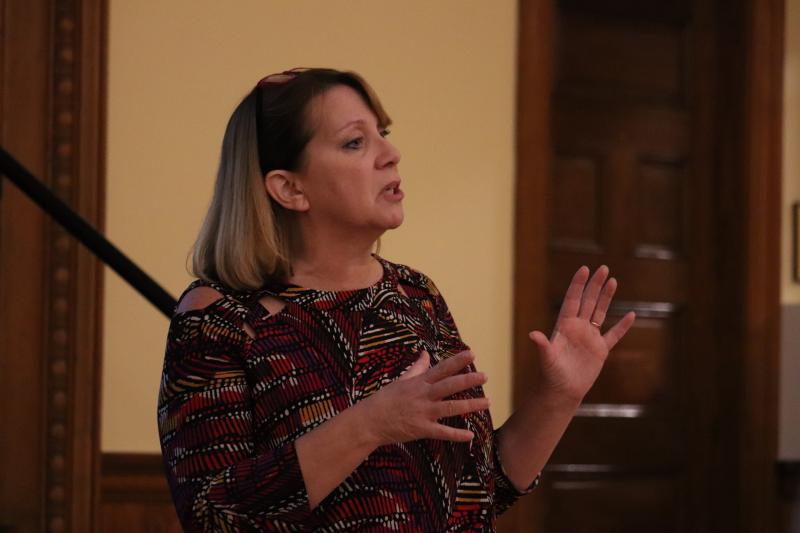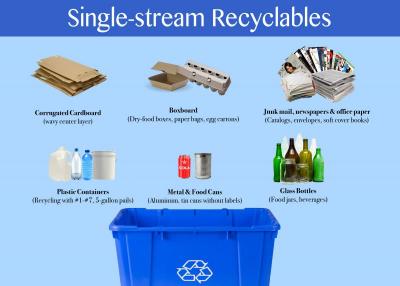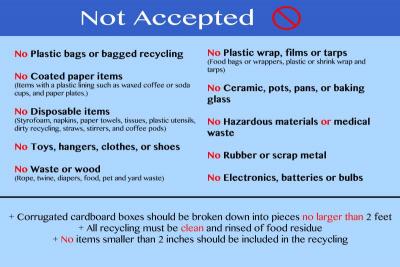Plastic bags and pizza boxes: contamination in the recycling bin
Clean cans and bottles and boxes and stacks of junk mail are all good. But hold the pizza grease and the dregs of shampoo.
Marion residents got a lesson last week on the ins and outs of recycling rules. As the companies that buy such materials and actually do the recycling increasingly reject messy batches of recyclables — locally and around the world — residents in Mattapoisett and Rochester should also be paying attention.
On Nov. 14, Patti Howard, a community outreach coordinator for Covanta Energy, joined a crowd at Marion Music Hall and outlined the items deemed to be “contaminants.”
According to Howard, recycling “contamination” happens when incorrect items or materials are put into the system such as containers with food residue or bottles in a plastic bag. When disposed of improperly, plastic and other paper products can act as contaminants.
Plastic bags and pizza boxes top the list items that will not be accepted at recycling centers. Even if the plastic bags are full of plastic bottles, which are accepted recyclables, waste disposal workers have been instructed to reject the bin altogether. Howard said that pizza boxes are covered in grease and cannot be accepted at all, also urging residents to remove any items with food residue.
“The food stuff is the problem,” said Howard. “It does need to be cleaned, rinsed, and dried.”
Howard also suggested that shampoo can be nuisance because it is not always in an accepted plastic bottle. The recycling plant will take any bottle with a recycling logo numbering one through seven, but shampoo bottles are often an eight or nine.
When a load of recycling is dropped off at the waste-to-energy facility SEMASS, all of the items are sorted in a system that requires few contaminants for proper operation. Incorrect items can be rejected and need to be discarded through the solid waste stream.
“Over the course of the last year or so, the recycling market not only here in Marion but all across the country has changed dramatically,” said Town Administrator Paul Dawson. “The recycling centers that we take your goods to are getting chock full of material they can’t get rid of and they’re being very selective over what they take. So we have to, in turn, be selective over what we take.”
The more items that are rejected, the more the costs increase for the transportation and dumping of trash. Marion does not currently pay to dispose of trash at SEMASS, but it will start paying for disposal at the end of 2020 when the current agreement ends, increasing the need to reduce unwanted recyclable loads now.
“There are obvious ecological — and I would hasten to use economical — benefits to properly recycling,” added Dawson.
Howard suggested that when prohibited items go into the stream, the costs of disposal will rise by over $150 per ton due to contamination. She added that reducing the contamination rate would significantly reduce future costs.
“The best way to get that contamination rate to perfection, frankly, is education and compliance at the curb,” said Howard. “Instead of costing you a lot of money, ideally it will cost you almost no money.”
















